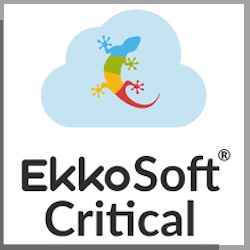The implementation of the Corporate Sustainability Reporting Directive (CSRD) continues to gather pace despite reporting standard delays, threshold changes and, most notably, a motion voted down by the European Parliament that would have rejected the first set of reporting standards.
For those preparing to report against the framework, this provides welcome confirmation that the reporting standards will formally be in place by the 1 January 2024 deadline. Although the sector specific and third country undertaking reporting standards are delayed, there is no delay to the implementation of CSRD itself. This means businesses impacted by CSRD must start preparing urgently if they haven’t already.
From data to double materiality - the significant challenges ahead
As CSRD activity ramps up, there remain many challenges for firms to consider when implementing the framework.
Data continues to be a major focus for companies. Even with the introduction of the materiality assessments for most data points, companies are preparing for a significant increase in reporting - each data point can consist of up to 20 data elements. Companies will need to bring in systems and controls, alongside governance and risk management processes, to ensure that the sustainability information they publish is up to the same standard as the financial information.
Securing the buy-in of a wide range of stakeholders should be a priority. Companies have told us how difficult this can be in an already challenging environment, with resources stretched and the volume of sustainability reporting increasing. Internal upskilling and building capability and expertise is a must for companies that need to ensure they are in a position to fully understand and implement their obligations robustly.
Double materiality - the requirement for firms to consider climate impact both upstream and downstream - is, for many businesses, a new concept. Companies will need to view sustainability related risks and opportunities through a new lens generally not asked for previously.
Five steps to prepare for CSRD
The first critical 'no regrets' steps for firms to take are:
- Legal entity scoping: Perform a thorough legal entity analysis to understand which entities are in scope. Consider getting a second opinion - it's essential that this is accurate. If you get this wrong, you’re baselining your entire programme on an incorrect assumption.
- Reporting strategy: Decide which reporting strategy will best meet your business needs - for example, whether you report at group level, artificial EU consolidated, or individual in-scope legal entity level. This will depend on the outcome of your scoping and the circumstances of the business.
- Value chain: Map out your value chain, including all direct and indirect business relationships, upstream and downstream, through the lens of double materiality.
- Double materiality assessment: Develop an approach to conducting the assessment, and carry out the analysis to determine which data points need to be reported as a minimum.
- Gap analysis and roadmap: Assess where your gaps are in meeting the European Sustainability Reporting Standards (ESRS) requirements, and use this as the basis for an implementation plan setting out practical changes to align with the regulation.
Each step is important in ensuring your organisation meets its obligations. However, each step is also an opportunity to create real long term value, by improving your understanding of risk, informing your sustainability strategy and demonstrating your ambitions to customers and stakeholders. To fully embrace the benefits, treat this as a strategic opportunity and not just a compliance exercise.
Author Karen Hurst (pictured, top of page) is ESG regulatory insights manager at PwC United Kingdom. Read more PwC blogs here.




